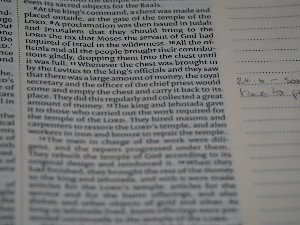Author
Adaptation vs Authenticity: Exploring the Consequences of Changing and Unchanging Human Nature on Individuals and Family Ties in Mother Courage and Her Children
Introduction
Adaptation vs authenticity: exploring the consequences of changing and unchanging human nature on individuals and family ties in mother courage and her children. Analyzing Brecht's Mother Courage: Adaptation vs. Authenticity of human nature, its impact on individuals, family ties, and moral values amidst war. Social Cognition Theory applied.
Abstract
Bertolt Brecht’s play Mother Courage and Her Children portrays the multiple-faceted dimensions of human nature through the characters of Mother Courage, Chaplain Eilif, Swiss Cheese, and Katherine. Through textual analysis of the play and by applying the lens of Albert Bandura’s Social Cognition Theory, the paper examines the alteration and steadfastness of human nature and their consequences. This play uses the setting of war as a destructive power that influences human nature as it is shaped by society, culture, and environment. Mother Courage and Chaplin are the characters who transform their nature according to the dynamic sociopolitical landscape. In contrast, Mother Courage’s children Eilif, Swiss Cheese, and Katerine are the authentic characters who died but did not bend to the situation. Standing firm on the values, beliefs, and one’s true self costs the highest prize, whereas compromising on the values and oneself saves life but shatters family ties and corrupts the individual's existence. The paper asserts that adaptation secures survival but has the possibility to contaminate moral values, while authenticity sustains integrity with an immense personal toll.
Review
This paper tackles a highly pertinent and enduring theme within literary studies and humanistic inquiry: the tension between adaptation and authenticity, specifically in the context of Bertolt Brecht's seminal play, *Mother Courage and Her Children*. The abstract effectively communicates the paper's scope, promising a textual analysis that scrutinizes the multifaceted dimensions of human nature as depicted through key characters. The application of Albert Bandura's Social Cognition Theory offers a promising theoretical framework, providing a structured lens through which to examine the alteration and steadfastness of human nature under the duress of war. The focus on the play's setting as a destructive force shaping human nature, influenced by society, culture, and environment, establishes a compelling analytical premise. The core argument, which posits that adaptation secures survival but risks moral contamination, while authenticity sustains integrity at an immense personal cost, presents a clear and provocative thesis. The character categorization, where Mother Courage and the Chaplain are seen as adapters and her children as authentic figures who pay the ultimate price, forms the backbone of the analysis. While this distinction is compelling, the full paper would benefit from a deeper engagement with the nuances within these categories. For instance, exploring the *nature* of Mother Courage's adaptations – are they purely opportunistic, or do they stem from a deeper, perhaps misguided, sense of maternal protection – could enrich the discussion. Similarly, examining the children's "authenticity" through Bandura's lens could illuminate whether their steadfastness is a conscious choice, an inability to adapt, or a manifestation of ingrained values, rather than just a simplistic adherence to an unchanging self. A robust and explicit connection, detailing how specific elements of social cognition manifest in the characters' choices and their consequences, will be crucial. Overall, the paper addresses a crucial aspect of Brecht's work and its enduring relevance to contemporary discussions on ethics, survival, and identity. The identified consequences for individuals and family ties provide a solid foundation for analysis. To further strengthen its contribution, the paper could potentially expand on how Brecht's dramatic techniques, such as the *Verfremdungseffekt* (alienation effect), contribute to the audience's understanding of human nature's malleability or steadfastness, thereby enriching the 'consequences' aspect. Furthermore, a brief consideration of how this specific portrayal of human nature in *Mother Courage* resonates with or challenges broader philosophical or psychological understandings of human nature beyond Bandura's theory, could provide valuable contextual depth. This promises to be a timely and insightful contribution to Brecht scholarship and the broader discourse on the human condition in times of crisis.
Full Text
You need to be logged in to view the full text and Download file of this article - Adaptation vs Authenticity: Exploring the Consequences of Changing and Unchanging Human Nature on Individuals and Family Ties in Mother Courage and Her Children from Pakistan Journal of Humanities and Social Sciences .
Login to View Full Text And DownloadComments
You need to be logged in to post a comment.
Top Blogs by Rating
Beyond the Chart: The Nurse's...
By Sciaria
Rebooting Democracy: A 21st-Ce...
By Sciaria
Beyond the Stereotype: Unpacki...
By Sciaria
Favorite Blog
Unveiling the Ocean's Hidden W...
By Sciaria
The Unfakeable Truth Machine:...
By Sciaria
Micro-Ergonomics: Tiny Tweaks...
By Sciaria





